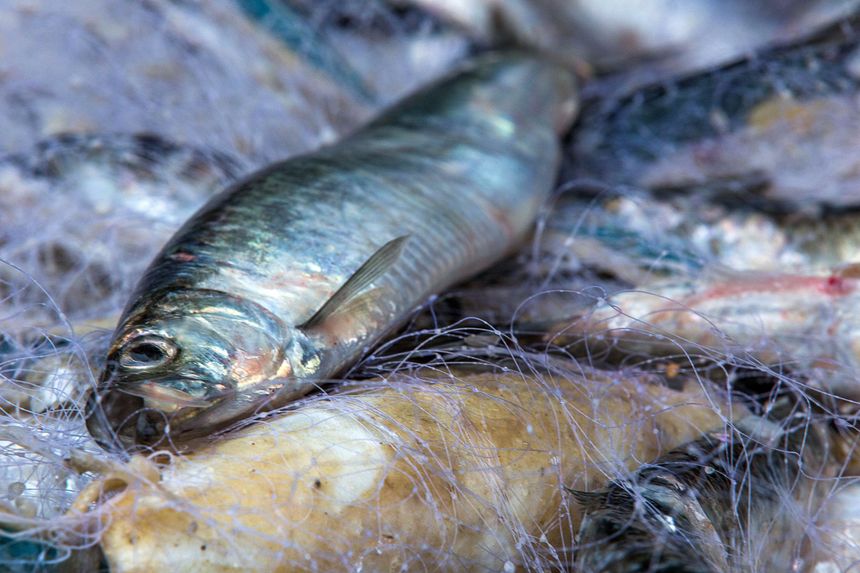Freshly caught herring
Photo:
Jens BüTtner/Zuma Press
Fishing is never an easy way to make a living, but it’s even harder when the federal bureaucracy can put you out of business on a whim. Herring fishermen are fighting back, with potentially large implications for the administrative state.
In 2020 the National Marine Fisheries Service (NMFS) decreed that Atlantic herring fishermen must include a human monitor to ensure compliance with catch limits. The fishermen must pay for the monitor, though many are small, independent operators. By the fisheries service’s own estimate, its mandate costs each boat $710 a day. Depending on the catch, this is often more than the captains make on a trip. Even the service acknowledges that the monitoring cost will reduce herring operations’ annual returns by 20%.
Enter the Cause of Action Institute, which sued the Commerce Department (which oversees the NMFS) in 2020 on behalf of fishermen in New Jersey. The suit claims Congress never authorized the bureaucratic cost-shift to the industry.
The 1976 Magnuson-Stevens Act governs fishing in federal waters and allows the fisheries service to impose monitors. But nowhere in the law does Congress give the service power to force herring fishermen to fund the program. Congress has authorized industry-funded monitoring in other, specific contexts—including for certain North Pacific fisheries, and for foreign vessels. It did not do the same here.
The fisheries service argues it has the legal right to impose the costs because the law is silent on the matter. The government points to language authorizing it to take steps that are “necessary and appropriate” to manage fisheries. Put another way, unless Congress explicitly prohibits an action, an agency can proceed.
The case has moved up the appellate chain, and in August a divided panel of the D.C. Circuit Court of Appeals ruled for the government. Judges
Sri Srinivasan
and
…
Click Here to Read the Full Original Article at RSSOpinion…

